Fascinating history of General Elections in Preston
and live on Freeview channel 276
With another General Election set to take place Preston can reflect on a number of memorable polls of the past.
From the late 13th century until 1983 the town of Preston had the right to choose two representatives in the House of Commons.
Advertisement
Hide AdAdvertisement
Hide AdThese days, the city has just one Member of Parliament with the South Ribble and Preston North and Wyre constituencies claiming voters from the rural areas.
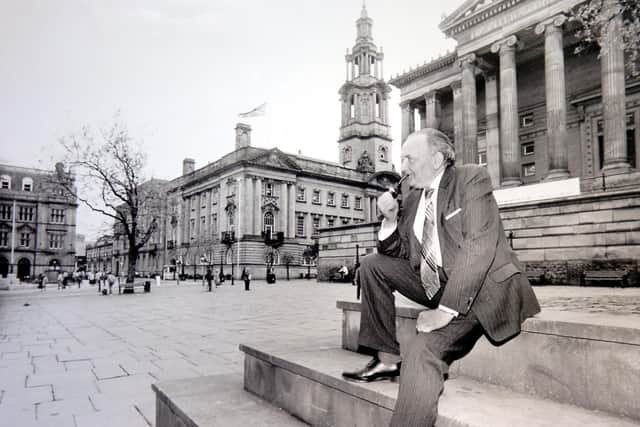

In the earlier days it was the two Preston candidates polling the most votes who were sent to Westminster, but from February 1950 through to the General Election of May 1979 the town was divided into two constituencies, namely Preston North and Preston South.
This period produced a number of nail biting encounters with both Parliamentary seats keenly contested. In October 1951 Edward Shackleton (pictured, inset), son of the explorer Sir Ernest Shackleton, won the Preston South seat for Labour.
His margin of victory was just 16 votes after more than 45,000 ballot papers had been counted. In Preston North, Julian Amery gained the seat for the Conservatives with a relatively comfortable majority of 1,108 votes.
Advertisement
Hide AdAdvertisement
Hide AdThe next General Election in April 1955 saw the Conservatives take both seats with Amery being returned to Westminster with an increased majority and Alan Green joining him after gaining Preston South from Shackleton with a majority of 474.
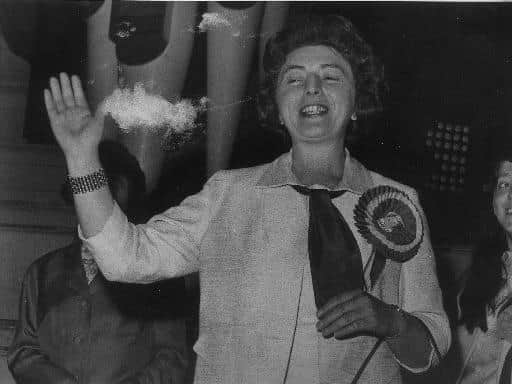

For the Tories it was same again in October 1959 as both Amery and Green were returned with an increased majority. The Labour Party had gone into the election with high hopes but with a turnout of over 80 per cent in both constituencies the Conservatives were happy that Harold Macmillan had gone to the polls early following a tax-reducing budget.
It was almost five years before the next General Election and when it came there was high drama in Preston’s political circles.
The election took place in September 1964 and when the polling booths closed the ballot papers were rushed to the Public Hall.
Advertisement
Hide AdAdvertisement
Hide AdAs the count continued into the early hours of Friday morning there was much speculation as to the outcome of the voting.
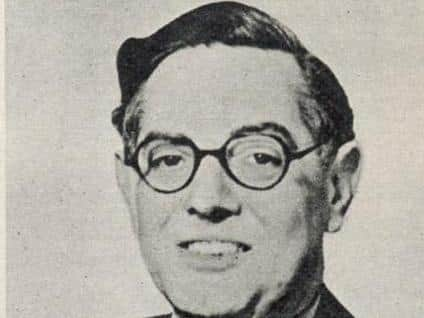

In Preston North the Conservative hopes rested on the shoulders of Julian Amery who had held the seat since February 1950.
The Labour Party had put their trust in newcomer Russell Kerr. The Preston South constituency also provided a straight fight with Labour hopeful Peter Mahon challenging for the seat held by Alan Green for nine years.
As the votes were stacked it was apparent both constituencies were neck and neck and shortly before midnight it was announced the Preston South count was completed. The numbers showed a Labour majority of 151 and a recount was immediately ordered. Twenty minutes later the figures were released for Preston North they showed a Labour lead also, but the margin of just eight votes meant an inevitable recount for that seat too.
Advertisement
Hide AdAdvertisement
Hide AdWithin the hour the Labour Party was celebrating success in Preston South after the recount gave Mahon a majority of 348 votes. Alan Green accepting defeat gracefully after two terms as the town’s MP.
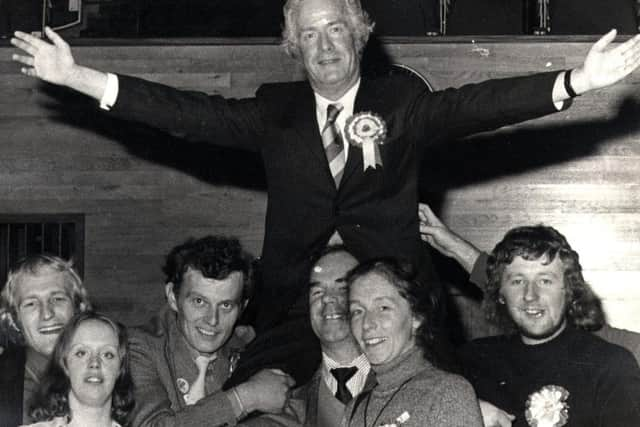

The battle for Preston North was set to continue into the night when the second count declared Julian Amery as the winner with a majority of 10 votes. The third count saw clerks from the South count joining their colleagues in the task and shortly after two o’clock in the morning the officials announced another result in Amery’s favour- this time 12 votes being the margin.
Not surprisingly a further count was demanded and the anxious candidates had another nail biting hour in front of them as the 41,000 ballot papers were checked once again.
For the third time Julian Amery was found to be just ahead of Russell Kerr and his 14 votes margin was confirmed as the winning tally.
Advertisement
Hide AdAdvertisement
Hide AdThe last ditch struggle for the Preston North seat had balanced on a knife-edge with a total of 106 spoiled ballot papers being debated by candidates and political agents under the supervision of the Town Clerk William Lockley.
Amery was somewhat relieved as he faced up to life on the opposition benches as the Conservatives under Alec Douglas Home were shocked by defeat at the hands of Harold Wilson.
Once again the national swing had been reflected in Preston and for Russell Kerr there was consolation in having come so close to unseating the popular Tory politician. Mahon was in a jubilant mood as he praised the people of Preston South for their support and he looked forward to joining the ruling Labour Party in Parliament. Alan Green was gracious in defeat and pledged that he would return.
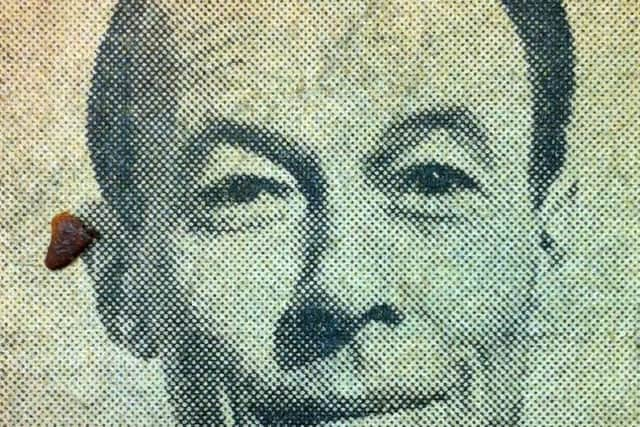

Amery saw the political pendulum swing against him in April 1966 as Harold Wilson called a snap election and the voters of Preston North opted for Ron Atkins and the Labour Party. However, he was soon back in Westminster, thanks to a by-election success in the Brighton Pavilion constituency.
Advertisement
Hide AdAdvertisement
Hide AdIn Preston South, Peter Mahon held off the challenge of Alan Green once more gaining an increased majority as Labour claimed both Preston seats.
It took four more years for Green’s hopes to materialise when he turned the tables on Mahon in the General Election of June 1970, unseating his rival at the third attempt to rejoin the Tory ranks, back in power under the leadership of Edward Heath.
That year the Conservatives were also celebrating in Preston North as Miss Mary Holt, a local barrister, claimed a historic victory over the Labour and Liberal candidates to become the town’s first female Member of Parliament.
The Preston seats were regarded as a barometer for Britain and in February 1974 as Harold Wilson returned to power with a minority government both the Labour candidates Ron Atkins in the North and newcomer Stan Thorne in the South toppled the Tories.
Advertisement
Hide AdAdvertisement
Hide AdThe Conservatives blamed the intervention of the Liberals for their downfall as they contested both seats and polled more than 7,000 votes in each constituency.
Just eight months later the polling booths were open again as Wilson sought a working majority. Preston stayed true to the Labour cause with the sitting members both being returned with an increased majority.
In the General Election of May 1979 Margaret Thatcher led the Conservatives to triumph after a winter of discontent and the Preston seats again reflected the mood of the nation
In Preston South the popular Stan Thorne held on with a majority of 621 votes and in Preston North Robert Atkins the Tory candidate claimed victory with a majority of just 29 as close to 40,000 votes were polled.
Advertisement
Hide AdAdvertisement
Hide AdHis election caused controversy as people noted the similarity on the ballot paper of the two candidates named R Atkins. Alas by the time of the June 1983 election a major reshuffling of the boundaries had taken place and the voters of Preston were left with just one Parliamentary seat with the creation of the South Ribble constituency.
The new South Ribble seat remained in the hands of Atkins from 1983 until the General Election of 1997 when Labour Party candidate and former Preston Council leaderDavid Borrow swept into Parliament with the Tony Blair government after gaining 25,856 votes.
Since 1983 the days of high drama have passed in the Preston seat with the newly created constituency staying in Labour hands despite any fluctuation in the national political scene.
Stan Thorne won the new Preston constituency in 1983 with a majority of 6,978 and in June 1987 Audrey Wise won it with a majority of 10,645 following Stan Thorne’s retirement.
Advertisement
Hide AdAdvertisement
Hide AdFurther comfortable success followed in Guild Year 1992 and in 1997 for Audrey Wise and the Labour party began to regard the seat as a safe one. Following the death of Wise in 2000 the seat was contested in a By-Election and despite a low turnout it remained in Labour hands.